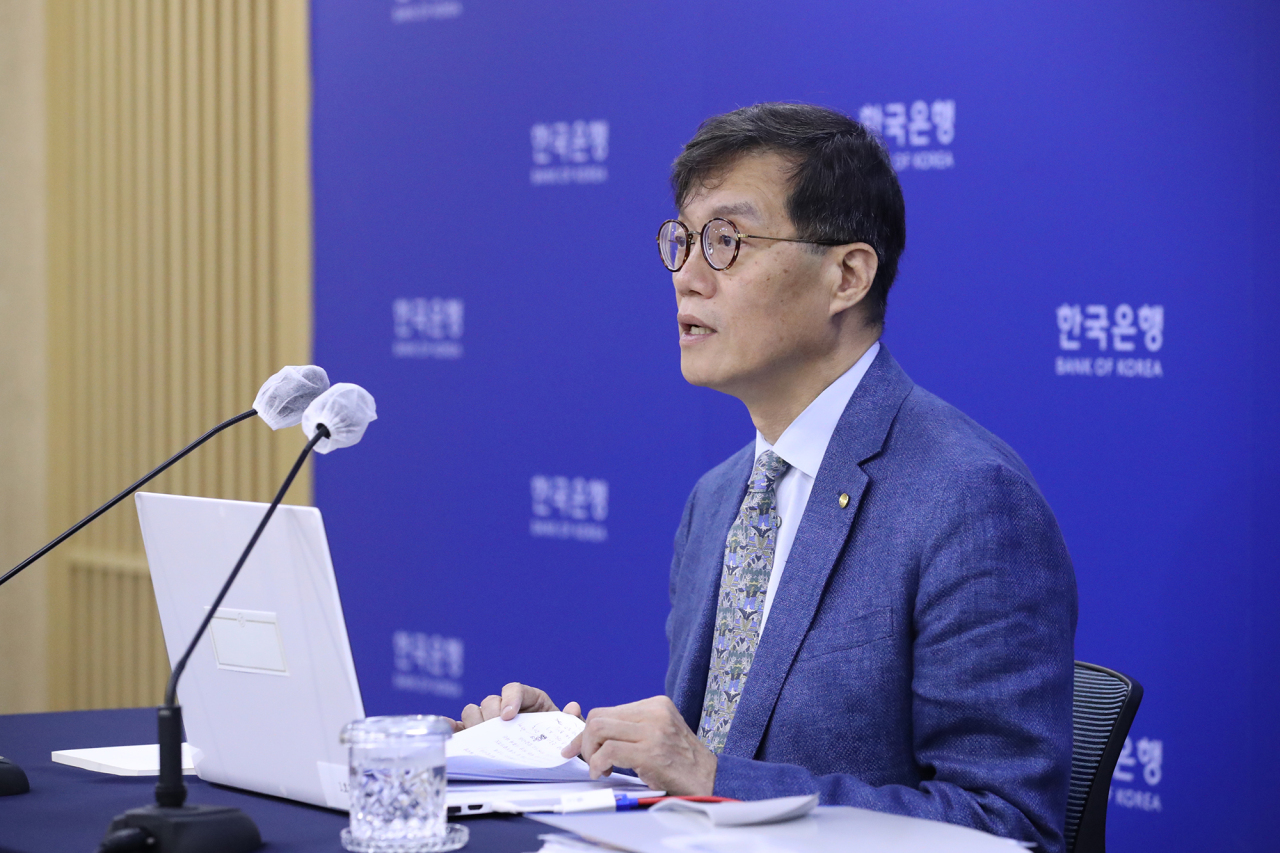 |
Bank of Korea Gov. Rhee Chang-yong speaks to reporters during a press briefing at the BOK headquarters in Seoul on Tuesday. (BOK) |
The Bank of Korea said Tuesday that South Korea could see the annual increase in consumer prices this year top the 4.7 percent marked in 2008, the highest level in the last 20 years, as a global surge in materials and food costs adds pressure on Asia’s fourth-largest economy.
“Given the surging oil prices and changes in the global economy, inflation for this year will surpass the estimate made in May,” the central bank said in a biannual report on consumer prices, revising up the 4.5 percent target it set a month earlier.
Consumer prices will rise faster in June and July than in May, when they rose 5.4 percent from the previous year, marking the fastest annual gain since August 2008, according to the BOK. The BOK governor declined to offer a specific target.
“Prices will be up, but does this mean we’ll be seeing a 6 percent increase or more? We’re not sure at this point and will have more to say in early July when we gather more data to draw our conclusions from,” Gov. Rhee Chang-yong told reporters.
Rhee, who noted inflation will reach its peak in the third quarter this year with geopolitical tensions between Russia and Ukraine still running high, said a bigger rate hike than usual requires him to look into a number of factors ahead of the policy board meeting in July.
The central bank usually changes the rate by increments of 25 basis points, but it is seen as mulling a bigger raise of 50 basis points in light of the US Fed’s sharper-than-expected hike of 75 basis points last week, the biggest lift in 28 years amid red-hot inflation there.
The US is set to back more big hikes to take the range up to 3.4 percent by year-end. Korea, whose rate is currently set at 1.75 percent and will fall short of the Fed’s target if it follows the tradition in the remaining four meetings this year, could potentially face capital outflows fleeing for better interest rates.
“What’s new since our last policy meeting in June is that the Fed lifted the rate and oil prices soared. Nothing has really changed on the inside here. We have three weeks before our July meeting. What we learn between now and then will help us make our decision,” Rhee said.
Meanwhile, the top banker addressed simmering concerns over stagflation, a coupling of low growth and high prices, saying there is no clear-cut answer to whether Korea is headed into that trap. But he conceded that the US and China could see faster-than-expected slowdowns in economic activity.
A week ago, the Finance Ministry warned of a growth slowdown, revising up this year’s inflation forecast to 4.7 percent from 2.2 percent and slashing growth forecast to 2.6 percent from 3.1 percent.
Finance Minister Choo Kyung-ho said the gloomy outlook was evidence of a “full-blown crisis,” calling a meeting of economic chiefs, including the BOK governor, for the first time since President Yoon Suk-yeol took office on May 10. Yoon has described stagflation worries as “real.”
“What we tried to convey then was not that we have a crisis right here with us. Rather the current economic challenge complicates difficulties involving the currency stability, capital outflows and repayment burdens for vulnerable groups facing defaults once rates shoot up,” Rhee said.
Rhee added, “Hence, all of us -- from the BOK, the Finance Ministry and other financial authorities -- have to chip in to tackle the challenges head-on. That’s how I understood it.”
By Choi Si-young (
siyoungchoi@heraldcorp.com)








